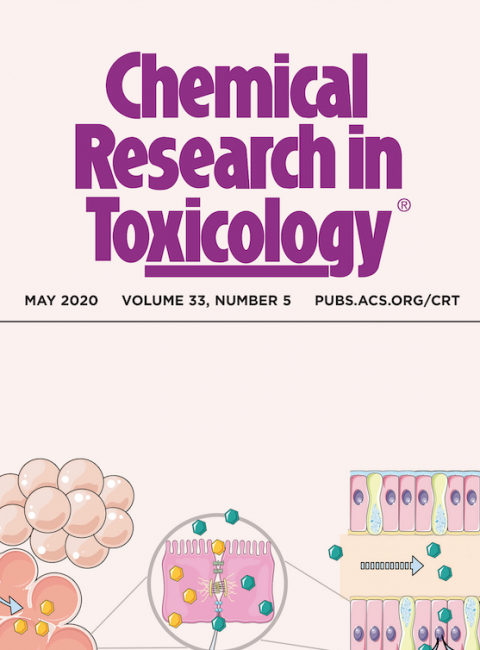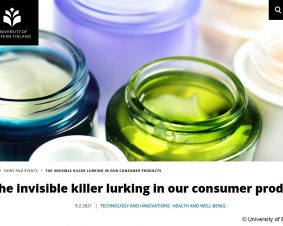 >
Spotlight October 2020: Nanosafety – Topic of the Future
>
Spotlight October 2020: Nanosafety – Topic of the Future
Research on nanosafety is a driver of innovation as the spotlight in July has demonstrated. But furthermore, this research field is built on routine as well if researchers look for the “needle in the haystack”. In many areas the safety research initiates the development of new methods, e.g. for the determination of nanoparticles within exposed organisms via the high-resolution analytical scanning transmission electron microscopy (HRSTEM) or helps with the establishment of reliable test guidelines. This and many more topics on body barriers or the immune system are combined in this cross cutting issue about “Future Nanosafety” by Krug and Krägeloh (2020).
This special issue on “Future Nanosafety” sketches organ specific effects of nanomaterials, demonstrates examples for new applications and offers new insights into biological mechanisms affected by nanomaterials. This collection of 17 scientific articles from important labs all over the world presents not only operation procedures for future test methods but includes also alternatives for animal testing or safe-by-design processes and introduces new detection methods for nanoparticles in the body or in consumer products.
Original Publication:
Harald Krug and Annette Kraegeloh (2020), Future Nanosafety. Chem. Res. Toxicol. 2020, 33, 5, 1037–1038. DOI: 10.1021/acs.chemrestox.0c00166

Weitere Spotlights
Spotlight June 2021: Endotoxin – the reason for false-positive toxicity testing for advanced materials?
Advanced materials, but also nanomaterials are closely examined to determine whether they trigger biological effects that could be harmful to humans and the environment before they are used in products. This also includes such materials as titanium dioxide, which has been used in a wide variety of products for more than 50 years. A particularly […]
Read moreSpotlight April 2021: Nanomaterials and Fake News – a commentary based on an example
In February 2021, the article “The invisible killer lurking in our consumer products” appeared, describing nanoparticles as a greater danger than Corona [1]. “The use of nanomaterials” would be “unregulated” and “nanomaterials are so small that they cannot be determined once they are part of a product”. So what is the truth of these statements? […]
Read moreSpotlight November 2021: Safe Materials from Scratch – Safe-by-Design in Materials Research
Advances in the field of materials science continue to amaze us with nanoscale materials with extraordinary chemical, electrical, optical, and numerous other properties. However, some nanoscale materials have different toxicological profiles compared to the same bulk material. Since safety issues are usually addressed just before launching a product into the market, safety issues may be […]
Read moreSpotlight December 2022: Fighting tumors with micro robots
When we, the DaNa team as operators of the website nanopartikel.info, write about nanobots, i.e. nanometre-sized machines, we point out that these machines belong to science fiction, may even remain a utopia – i.e. never realisable. On the significantly larger micro-scale, however, small machines are conceivable that could help in the therapy of diseases, e.g. […]
Read more

